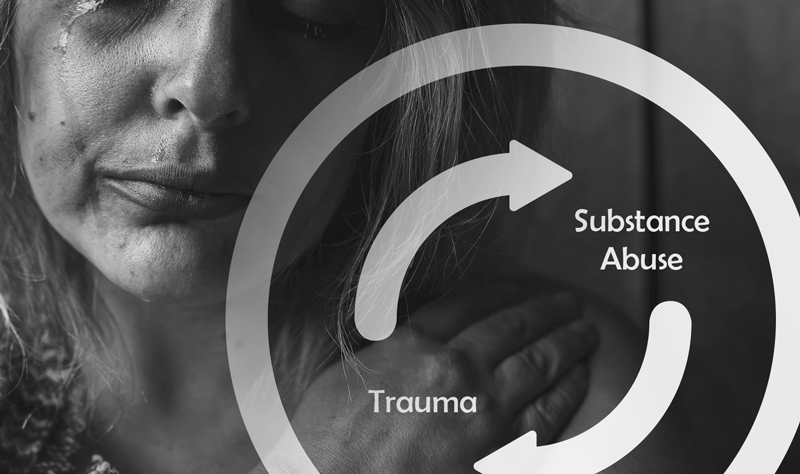When we see yet another #MeToo headline rush past the floodgates, it’s tempting to speculate, “We are living in crazy times. Why is all this sexual harassment stuff coming out now, so long after the fact?” It’s a question for the ages. Yet to those for whom #MeToo hits home, the answer often feels equally elusive. Time doesn’t always heal—sometimes it buries our memories in scars, and the pain drives us to further build that tissue as protective armor. Many #MeToo survivors have found that drugs and alcohol sing a comforting lullaby of silence. Those substance stupors, unfortunately, put the same survivors back at risk for more sexual harassment. That’s why #MeToo bleeds into substance abuse in a way that creates a devastating symbiotic relationship.
“Drunk Girls Can’t Say No” is Victim Blaming
A predatory smirk seems to always accompany the phrase, “Drunk girls can’t say no!”
Truth rings out of the phrase for all the wrong reasons. Although we often excuse predators because their victims “chose to drink,” reality doesn’t align with excuses. There’s a misconception out there that chronic substance abuse is a problem of bad choices. That if the victims had “taken care of themselves,” they wouldn’t be at risk in the first place. Studies in psychology and decades of addiction treatment, however, point to a different answer. Addiction functions as a disease, not a choice. And that disease’s symptoms worsen from the emotional wreckage of silently carrying the burden of #MeToo.
When #MeToo Instigates Substance Abuse
Not all #MeToo experiences stem from a pre-existing alcohol or drug problem. Statistically speaking, at least half of sexual assaults* do not involve alcohol at all. That speaks nothing to what happens in the wake of assault, though.
In many cases, assault victims become mired in misplaced guilt and shame. It’s an understandable reaction when that person lacks access to therapeutic resources. Instead of processing the events in an emotionally healthy way, they turn to being comfortably numb. They seek answers from their drug of choice. Unfortunately, that repression dams up natural sadness and leads to an eventual avalanche of new problems.
* Most assaults are not reported, so these numbers are probably not accurate. But we have to work with the data available. If you’ve been a victim of sexual assault, we encourage you to contact your local police department and file a report. If you struggle with a substance abuse problem, you’re also welcome to a free consultation with our staff anytime: 855-737-7363
Symbiosis: One Feeds Off the Other

Trauma Leads to Substance Abuse
Sexual assault creates trauma. When dealing with the symptoms of trauma, people often find it a quick & dirty solution to use drugs or alcohol. For individuals predisposed to addiction, this behavior becomes habitual and develops into a serious substance abuse problem. If you think you might have a problem, our addiction specialists offer free counseling and resources: 855-737-7363
Substance Abuse Leads to Trauma
The stupors of substance use leave people vulnerable to predators. Intoxicated states not only compromise judgment in dangerous situations, but they also embolden users to enter compromising situations that they would not otherwise experience.
Emotional Distress vs. Trauma
Some women are hesitant to accept the label of “trauma” because it seems too severe of a word. Be wary of letting semantics get in the way of seeking help.
Whether you identify with the term “trauma” or not, emotional distress is enough to spur maladaptive behaviors like substance abuse. Maybe it appears in the form of unintentionally blacking out at bars on the weekend. Or drinking a few too many glasses of wine at business lunches. Whatever form substance abuse takes, it’s important to ask what’s driving such self destructive behaviors.
Changing Culture: Every Little Act of Self-Help Matters
 We’ve all been amazed at the sheer volume of women coming out with their #MeToo stories in 2017. But for the women in America, if we’re really honest with ourselves, we’re not actually surprised. Most of us have known this hell for a long time. The stories vary in detail. Maybe your experience with sexual harassment comes from being a waitress in your early twenties. Maybe it’s from being passed over for promotions at work because you refused your boss’s unwanted advances. Perhaps it’s worse, involving violence that made you question your faith in humanity. Whatever the flavor of detail, we can all acknowledge a simple overarching truth: It’s almost as if sexual harassment is a rite of passage for women in America. And we turn to wine, or whatever other substance, as the socially acceptable way of coping.
We’ve all been amazed at the sheer volume of women coming out with their #MeToo stories in 2017. But for the women in America, if we’re really honest with ourselves, we’re not actually surprised. Most of us have known this hell for a long time. The stories vary in detail. Maybe your experience with sexual harassment comes from being a waitress in your early twenties. Maybe it’s from being passed over for promotions at work because you refused your boss’s unwanted advances. Perhaps it’s worse, involving violence that made you question your faith in humanity. Whatever the flavor of detail, we can all acknowledge a simple overarching truth: It’s almost as if sexual harassment is a rite of passage for women in America. And we turn to wine, or whatever other substance, as the socially acceptable way of coping.
Excuse me while I climb up onto my soapbox… IT DOESN’T HAVE TO STAY THIS WAY. It shouldn’t. As a survivor of this cycle myself, I spent years trying to suppress the guilt and resentment with countless handles of vodka. Maybe the occasional spiced rum. Regardless, the questions I was asking were all wrong:
What if I had just said no to those last few beers? What if I had worn something more conservative? Maybe if I had been more careful about the company I kept? Will my loved ones ever respect me again?
Rehab changed those internal questions. Once the alcohol was flushed out and an addiction therapist coaxed out my shame, she proverbially slapped the guilt out of my hands by asking these questions instead:
Do you understand that this wasn’t your fault? Can you see that he violated your rights? Have you considered that your friends & family only blamed you because of their own ignorance about what consent means, and what a blackout is?
Culture isn’t easy to change. Like it or not, as Americans, we live within a system that’s extremely hostile to both women and the disease model of addiction. #MeToo aims to move the conversation in the right direction. Rather than feeling discouraged by this oppressive truth, focus on one of AA’s best proverbs:
Progress, not perfection. Sharing your #MeToo story encourages change. Click To Tweet
Messages of Hope Aren’t Enough
Although this article is aimed at helping people understand cycles trauma and addiction, reading a few words isn’t sufficient to fix such a deeply rooted issue. They are certainly a great way to get started though.
Seek help. There is no shame in it; in fact, addiction therapists can teach you the tools to deal with the shame that accompanies trauma and substance abuse. Whatever your needs (or the needs of your loved one) may be, help is out there. It’s okay to not be okay: 855-737-7363


